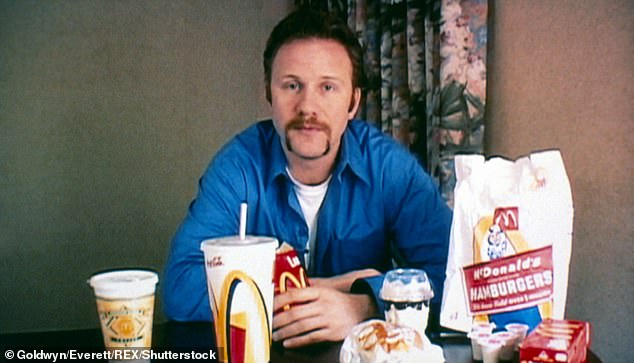Morgan Spurlock’s impact on the fast food industry is remembered after his death.
Spurlock, who died Friday at age 53 from cancer complications, produced the 2004 documentary ‘Super Size Me’ to criticize the impact of McDonald’s and its food portions on customers.
In his experiment, he ate only McDonald’s food for a month, and while there is no indication that his stunt from 20 years ago was linked to his death, it had a big impact on his body.
In his 30-day challenge, which was filmed and later formed the basis for his much-revered movie, Spurlock couldn’t turn down increasing the size of his meals when they were offered.
The main focus of the documentary was how the company’s employees lured restaurant visitors with larger portions.
Morgan Spurlock, the documentary filmmaker behind the infamous film ‘Super Size Me’, was the reason McDonald’s removed the ‘supersize’ option from its menu.
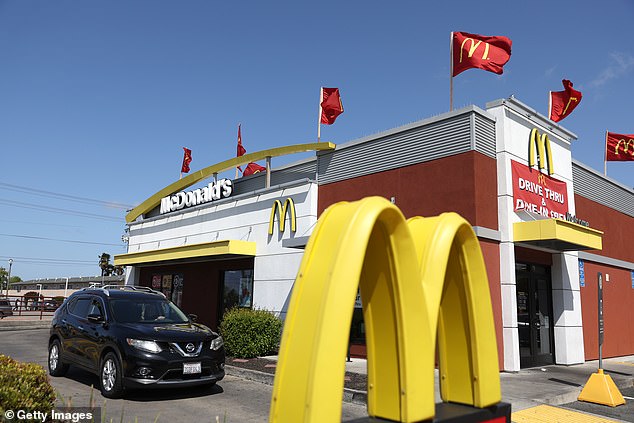
The Oscar-nominated filmmaker produced the 2004 documentary to shame McDonald’s, which at the time offered “large” all meals at a discount.
To reflect the typical American lifestyle, Spurlock also reduced exercise during this period.
The film became a financial success, grossing $22 million worldwide.
But most importantly, it sparked a crucial discussion about the role fast food restaurants play in promoting unhealthy eating habits.
Following the movie’s release, McDonald’s made headlines by getting rid of the supersize option.
However, the company downplayed any connection to the documentary.
A CBS News spokesperson in 2004 stated that the decision was solely about simplifying the menu, not a reaction to the film.
“We weren’t focusing on that (film) at all,” stressed Walt Riker, the spokesman.
Furthermore, he stated that the super-sized options were not big sellers anyway, suggesting menu simplification as the main driver.
Following his 30-day challenge for Super Size Me, Spurlock was declared medically obese and his cholesterol and body fat levels skyrocketed. But perhaps the most worrying effect of all was that within weeks his liver had become so damaged that he had turned “into pate,” as his doctor put it, and looked like “an alcoholic after a binge.”
Spurlock’s health transformation was so impactful that it led McDonald’s to eliminate its super-sized menu options, and it was a turning point in the way many Americans viewed fast food.
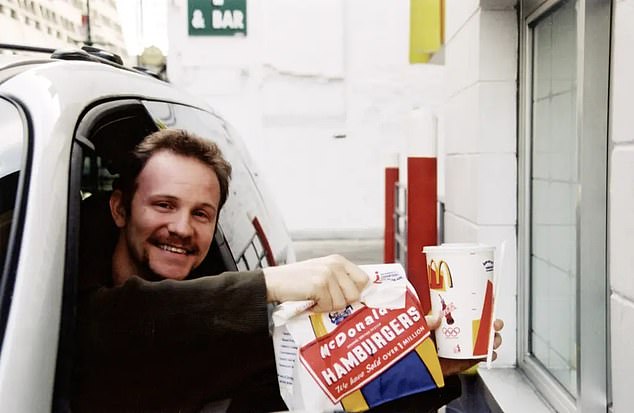
Spurlock ate at the fast food chain three times a day for 30 days and did not allow himself to refuse the “supersize” option if asked.

On the second day of his experiment, Spurlock became nauseous to the point of vomiting out of his car window.
But years later it was learned that Spurlock was struggling with alcoholism at the time of filming, which may have influenced the results.
In the documentary, the doctor who examined him during the experiment said that fast food was “pickling his liver,” but Spurlock did not mention his alcoholism.
It wasn’t until 2017 that Spurlock shockingly admitted that he had “drank constantly since the age of 13.”
He added: “I haven’t been sober for more than a week in 30 years.”
This led many to wonder if this was really the reason why his liver looked like that of an alcoholic in the 2004 documentary, and if the tremors he suffered in the film were symptoms of alcohol withdrawal.
Spurlock’s 2017 confession also contradicts what he said in Super Size Me.
When the doctor initially asked, “Do you drink alcohol?” Spurlock responded, “Now? None.”
At the start of the experiment, Spurlock weighed 185 pounds and had a body mass index (BMI) of 23.2, which is considered healthy.
After a few days of eating only fast food, Spurlock began to experience negative health effects.
He gained a significant amount of weight and his BMI increased to 25.5, which is considered overweight.
By the end of the experiment, he had gained 24.5 pounds and his BMI increased to 30, or obesity.
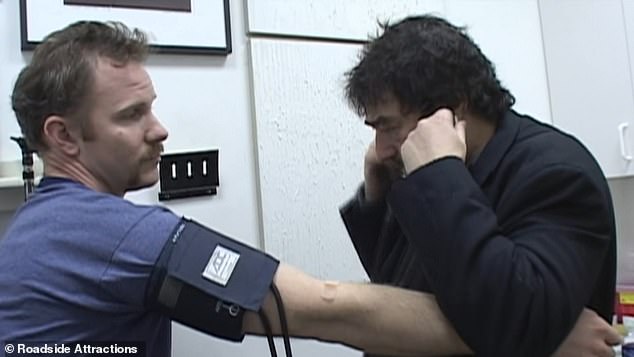
His doctor told him that his liver was failing and had become soft like pâté. He also gained about 10 pounds in a week and his cholesterol skyrocketed.
Their cholesterol also increased from a healthy level to 230 mg/dL (6.0 mmol/L), which is considered “borderline high risk” for cardiovascular disease, stroke and other heart problems.
It suggested that fatty deposits had built up in his arteries, restricting blood flow to his heart.
A growing body of research has also found strong links between high levels of refined sugars, saturated fats, and processed ingredients and depression, something Spurlock struggled with during the documentary.
The increase in blood sugar caused by eating can cause tiredness later, making the person less likely to participate in activities such as socializing that could prevent depression.
A 2014 study in Iran found that among 13,486 participants, a significant association was found between junk food consumption and psychiatric distress.
More violent behaviors were also significantly associated with junk food intake.
Mr. Spurlock’s sexual desire was also affected. High levels of sugars and saturated fats restrict blood flow, making it difficult to perform in the bedroom.
About halfway through, Spurlock’s girlfriend, a vegan chef, tells the audience that she’s “having a hard time getting up.”
And eating these foods also causes weight gain. Heart problems and high cholesterol can also cause erectile dysfunction, while trans fats are known to decrease libido.

Spurlock (pictured with friends) admitted to abusing alcohol in 2017, which may have influenced his liver problems and poor mental health.
Just one day after starting the experiment, he vomited profusely. Shortly after, she noticed strange pulsations in his stomach.
When your doctor told you that your liver was becoming soft and mushy, telling you that your liver was “turning into pâté,” he meant that the food was changing the way your liver functioned to the point that it couldn’t detoxify the blood or metabolize nutrients. and produce essential proteins.
The rules of the experiment were to eat everything on the menu at least once a month and always have to answer “yes” to the question: “Would you like to do that in Super size?”
“SGOT was originally 21 years old,” according to the doctor, which means that the liver began to function normally.
He added: Now it is 130. And SGPT was originally 20.
“Now it’s 290, an increase of more than tenfold… Anyone would think now that you’re sick.”
He added: “If someone did this to the liver with alcohol, in theory it could destroy the entire liver… Kill the liver cells and you would suffer liver failure.”
“I’ve never heard of anyone doing this to their liver on a high-fat diet, but I guess anything is possible.”
This indicates that the liver has been severely damaged due to toxins in food.
His diet put him at higher risk for heart disease due to its effects on his inflammation levels, as well as blood flow disturbances caused by high cholesterol.
Foods have also been linked to about 30 types of cancer, especially ovarian cancer.
A study by experts at Imperial College London found that for every 10 percent increase in ultra-processed foods in a person’s diet, there was a six percent increase in the risk of death from cancer.
Spurlock admitted to abusing alcohol in 2017, which may have influenced his liver problems and poor mental health.
‘Is it because I’ve been drinking constantly since I was 13? “I haven’t been sober for more than a week in 30 years,” she said at the time.
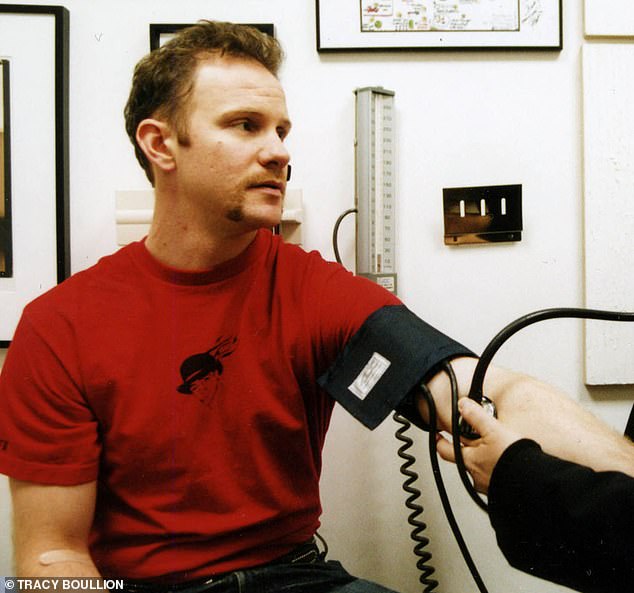
Spurlock’s documentary earned him an Oscar nomination and grossed more than $22 million worldwide.
The admission caused some to question his credibility, saying his poor liver health was similar to that of an alcoholic.
His 2004 hit captured the zeitgeist and earned $22 million at the global box office.
In one scene, just a week into the diet, he finds a hair in his parfait. In another, a doctor told her that she had gained about five percent of her body weight.
A few days later he said he was not feeling well: “It’s not that I feel bad, but that I feel very depressed.”
He added that he feels hungry again just an hour after eating.
Fast food contains few nutrients and, on the other hand, very high amounts of sodium and sugar. In fact, the chain’s largest Coca-Cola, which I drank often, contains 48 tablespoons.
When he was weighed at a checkup, his doctor reported that he had gained about 10 pounds in a week.
The doctor said, ‘One hundred and ninety-five pounds.
Mr. Spurlock said, “It can’t be.” We have to redo this. -That’s zero. -That thing is set to zero.
The doctor replied: ‘Actually, you have gained about 5% of your body weight.
“Losing and gaining weight so quickly is not healthy.”
He also described headaches and a throbbing sensation in his stomach and penis.
Food to him no longer seemed like food when the documentary was added, although he has since returned to McDonald’s.
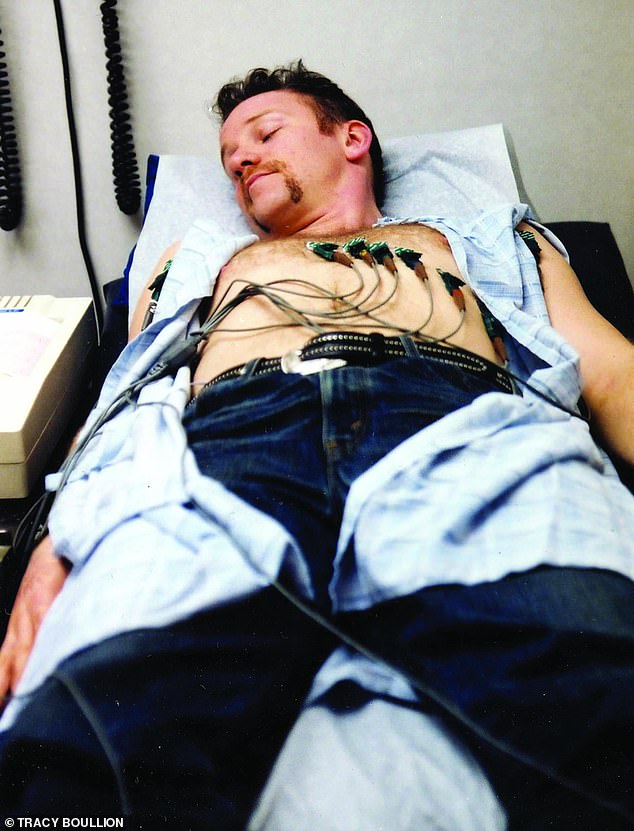
His physical and mental health declined rapidly and he gained 24.5 pounds by the end of the experiment.
Spurlock went on to direct nearly 70 other documentaries and television series, all produced by his production company, Warrior Poets.
He released a sequel to his 2004 smash hit, titled ‘Super Size Me 2: Holy Chicken!’ in 2019, which delved into corporate influence on America’s farms.
A statement from his brother Craig Spurlock, who worked with Morgan on many of his films, read: “It was a sad day when we said goodbye to my brother Morgan.
‘Morgan gave so much through his art, ideas and generosity. The world has lost a true creative genius and a special man. “I am very proud to have worked alongside him.”
Spurlock died Thursday in upstate New York, his family said in a statement.
It is still unclear what type of cancer he suffered from or how long his battle lasted.
He is survived by his two children, ex-wives and parents.

